Good Morning from Washington, DC…
In order to move forward with President Biden’s $1.9 trillion relief package without Republican support or votes, Democrats this week unleashed the budget reconciliation process (which allows passage by a simple majority, circumventing the filibuster). Democrats may pay a long term political price for moving ahead on a partisan basis but, more certainly, had a more immediate cost: known on the Hill as a “vote-a-rama.” The staffer who came up with the term “vote-a-rama” for this ritual defined it as:
vote-a-rama: (n.) an extended sequence of back-to-back votes in the United States Senate. A side effect of special rules for considering the budget resolution or a reconciliation bill, a vote-a-rama may last 10, 20, 30 hours or more, and occurs after all time for debate has expired but before a vote on final passage.
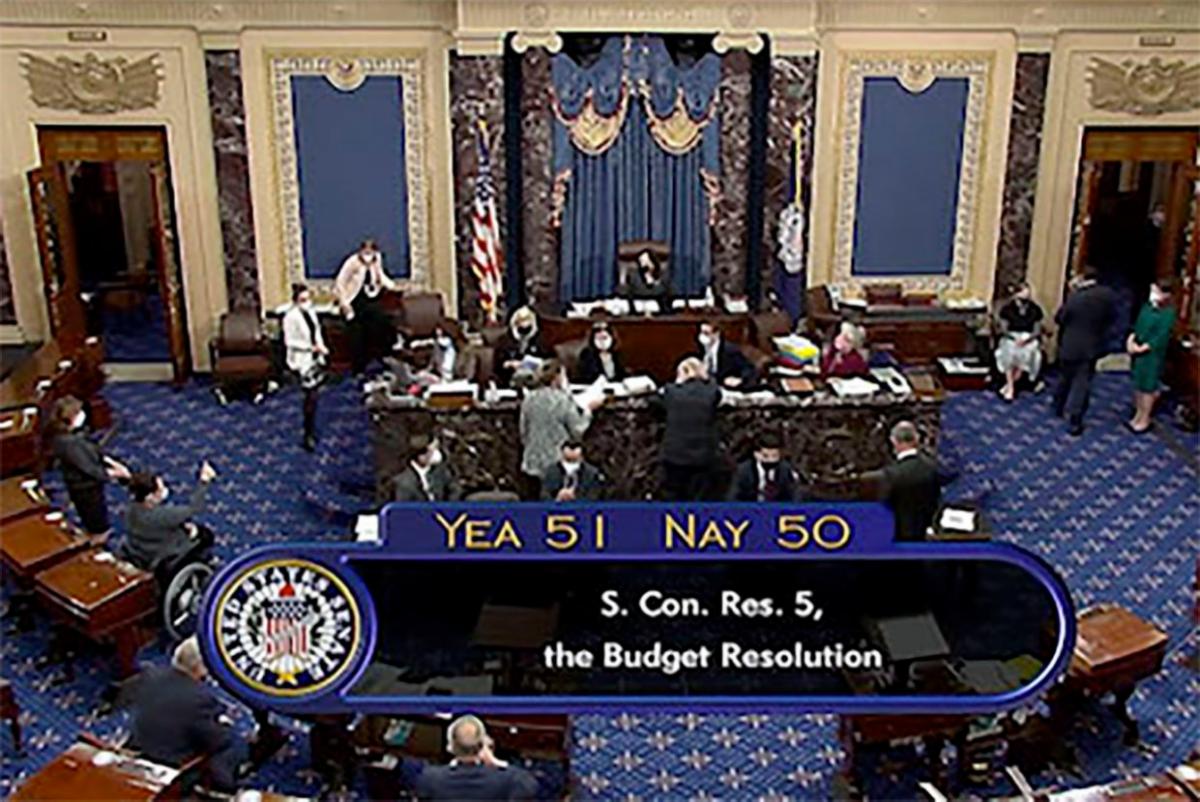 For 15 hours Thursday night, the Senate worked through the marathon process. Republicans filed over 900 amendments and debated 45 of those amendments at length. Many of the amendments had little to do with the Coronavirus Relief package—or even fiscal matters for the most part. They ranged from barring the Environmental Protection Agency from banning hydraulic fracturing to ensuring the United States Embassy in Israel stays in Jerusalem (which both passed). However, a handful of germane amendments were considered and agreed to: notably, the 99-to-1 approval of the amendment sponsored by Sens. Joe Manchin (D-West Virginia) and Sen. Susan Collins (R-Maine) to ensure that “upper-income” taxpayers do not get stimulus payments. The process pushed Senators to their wits end—Senator Chuck Grassley (R-Iowa) snapped at Senator Ted Cruz (R-Texas) for his amendment creating a biofuel cap, and there were repeated boos overtaking a roll call vote—before Vice President Kamala Harris cast the tie-breaking vote at 5:30 AM on Friday to allow the Stimulus Bill to move forward through Reconciliation, setting it on a path toward a 51-vote passage.
For 15 hours Thursday night, the Senate worked through the marathon process. Republicans filed over 900 amendments and debated 45 of those amendments at length. Many of the amendments had little to do with the Coronavirus Relief package—or even fiscal matters for the most part. They ranged from barring the Environmental Protection Agency from banning hydraulic fracturing to ensuring the United States Embassy in Israel stays in Jerusalem (which both passed). However, a handful of germane amendments were considered and agreed to: notably, the 99-to-1 approval of the amendment sponsored by Sens. Joe Manchin (D-West Virginia) and Sen. Susan Collins (R-Maine) to ensure that “upper-income” taxpayers do not get stimulus payments. The process pushed Senators to their wits end—Senator Chuck Grassley (R-Iowa) snapped at Senator Ted Cruz (R-Texas) for his amendment creating a biofuel cap, and there were repeated boos overtaking a roll call vote—before Vice President Kamala Harris cast the tie-breaking vote at 5:30 AM on Friday to allow the Stimulus Bill to move forward through Reconciliation, setting it on a path toward a 51-vote passage.
In addition to the relief package and confirmations, this week will begin the fourth Impeachment Trial in the history of the United States, as former President Donald J. Trump stands trial on charges of “inciting an insurrection.” President Joe Biden thus far has sidestepped the discussion saying he “will let the Senate make that decision.” A White House official confirmed Biden plans to avoid the spotlight, last week saying, “The President is expected to be out all week doing events and speaking and is not expected to speak at all about impeachment.”
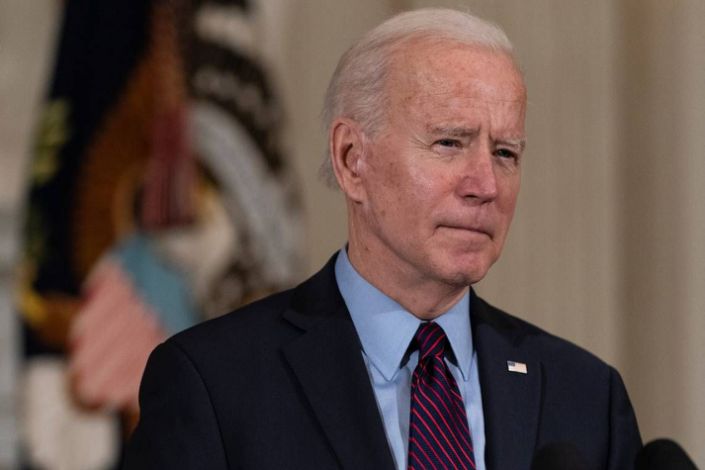 The impeachment process will bring the divisions raging within the Republican Party further into the public eye. Last week, the vote to strip Q-Anon devotee Georgia Rep. Marjorie Taylor Greene of her Committee assignments garnered more Republican votes than the impeachment of Trump. Eleven Republican members of the House voted to oust Greene, including New York Republicans Chris Jacobs, John Katko, and Nicole Malliotakis. While that may seem like a death knell for Greene, several Republican sources have noted that she could become the new star of Trump’s base. The divide around Greene underscores the larger Trump vs. Establishment schism that is rearing its head across the nation and will long outlive his presidency. Currently, three of the ten Republicans who voted to impeach Trump are already facing primary challenges for 2022. We expect the divide to only deepen over the next few weeks and months.
The impeachment process will bring the divisions raging within the Republican Party further into the public eye. Last week, the vote to strip Q-Anon devotee Georgia Rep. Marjorie Taylor Greene of her Committee assignments garnered more Republican votes than the impeachment of Trump. Eleven Republican members of the House voted to oust Greene, including New York Republicans Chris Jacobs, John Katko, and Nicole Malliotakis. While that may seem like a death knell for Greene, several Republican sources have noted that she could become the new star of Trump’s base. The divide around Greene underscores the larger Trump vs. Establishment schism that is rearing its head across the nation and will long outlive his presidency. Currently, three of the ten Republicans who voted to impeach Trump are already facing primary challenges for 2022. We expect the divide to only deepen over the next few weeks and months.
The same dynamics are at play for new Senate Majority Leader and New Yorker Chuck Schumer, who of late has already been building his rapport with key players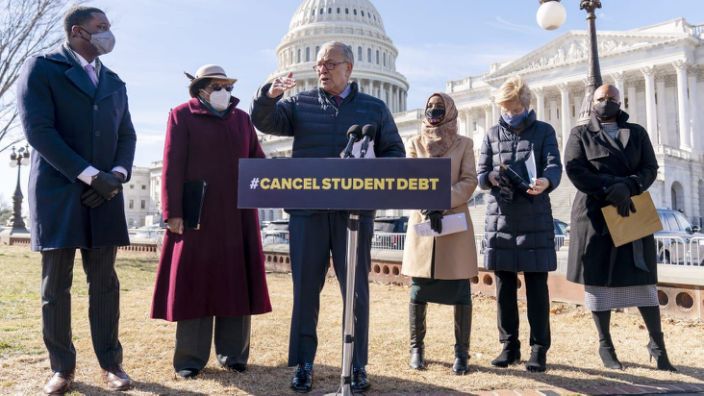 on the Left in New York while trying to cut major deals on the Hill. The Senator faces a balancing act as he seeks to simultaneously drive both Donald Trump’s Impeachment Trial and the stimulus package. In recent weeks, Schumer has been channeling the energy of the Left and partnering with key progressives on the home front. He has pushed President Biden to “go big and go bold” with his economic policies, and he has come out in support of the decriminalization of cannabis; signed onto Cory Booker’s Baby Bonds bill—a plan to address the racial wealth cap—and stood with Senator Elizabeth Warren to call on Biden to cancel student debt. The long time moderate, who has always prided himself on relationships with Republicans Upstate, said in a statement last week “the world has changed and the needs of families have changed,” he said, “income and racial inequality has worsened, the climate crisis has become more urgent, Trump has attacked our democracy — all of these things require big, bold action and that is what I am fighting to deliver in the Senate.” While he pushes a bold agenda, Schumer must manage a 50-50 Senate to deliver real results (in large part by working with Republicans—mind you, he’ll need their support on all non-fiscal issues). How effective he is in that balancing act will be a big part of Democrats’ success over the next two years.
on the Left in New York while trying to cut major deals on the Hill. The Senator faces a balancing act as he seeks to simultaneously drive both Donald Trump’s Impeachment Trial and the stimulus package. In recent weeks, Schumer has been channeling the energy of the Left and partnering with key progressives on the home front. He has pushed President Biden to “go big and go bold” with his economic policies, and he has come out in support of the decriminalization of cannabis; signed onto Cory Booker’s Baby Bonds bill—a plan to address the racial wealth cap—and stood with Senator Elizabeth Warren to call on Biden to cancel student debt. The long time moderate, who has always prided himself on relationships with Republicans Upstate, said in a statement last week “the world has changed and the needs of families have changed,” he said, “income and racial inequality has worsened, the climate crisis has become more urgent, Trump has attacked our democracy — all of these things require big, bold action and that is what I am fighting to deliver in the Senate.” While he pushes a bold agenda, Schumer must manage a 50-50 Senate to deliver real results (in large part by working with Republicans—mind you, he’ll need their support on all non-fiscal issues). How effective he is in that balancing act will be a big part of Democrats’ success over the next two years.
Back in New York…
The fallout of Attorney General Tish James’ bombshell report on nursing home deaths continues. Last Wednesday, the state Supreme Court found that the New York State Health Department violated state law by not providing data in response to a Freedom of Information Act request from the Empire Center for Public Policy, a fiscally-conservative think tank in Albany. The Court gave NYDOH five business days to provide the requested information, including the number of patients who died inside and outside of nursing-home facilities. (Notably, the Joint Legislative Budget Hearing for Health had been scheduled that day. It was moved on a request from Commissioner Zucker who said he was too busy with Cuomo’s daily briefing. After the Court decision, Cuomo’s briefing was cancelled.)
 As we predicted, the Legislature has seized on the report to begin flexing its muscles: Senator Liz Krueger (D-Manhattan), Chair of the Senate Finance Committee, said in a statement that the findings in the Attorney General’s nursing home report were an “an intentional underreporting of deaths” and called on the Legislature to begin oversight hearings. Most importantly, Senator Krueger also said she wants to “re-evaluate the continued use of such broad emergency powers by the Executive.” Read the full statement to Capital Tonight’s Susan Arbetter here. Krueger’s statement is the tip of the iceberg, many more heated discussions are going on behind the scenes. We will have to wait and see if Speaker Carl Heastie and Majority Leader Andrea Stewart-Cousins use this to assert themselves in budget negotiations.
As we predicted, the Legislature has seized on the report to begin flexing its muscles: Senator Liz Krueger (D-Manhattan), Chair of the Senate Finance Committee, said in a statement that the findings in the Attorney General’s nursing home report were an “an intentional underreporting of deaths” and called on the Legislature to begin oversight hearings. Most importantly, Senator Krueger also said she wants to “re-evaluate the continued use of such broad emergency powers by the Executive.” Read the full statement to Capital Tonight’s Susan Arbetter here. Krueger’s statement is the tip of the iceberg, many more heated discussions are going on behind the scenes. We will have to wait and see if Speaker Carl Heastie and Majority Leader Andrea Stewart-Cousins use this to assert themselves in budget negotiations.
For most of New York, Election Day ended almost three months ago. But for Democrat Anthony Brindisi, Republican Claudia Tenney, and the voters in New York’s 22nd Congressional District, Election Day has stretched almost 90 days. The race came to an apparent resolution Friday as a judge ruled that Tenney—a close ally of former President Donald J. Trump—should be declared the winner by a 109-vote margin. The ruling closes months of litigation, twists and turns, and ever-changing razor thin margins.
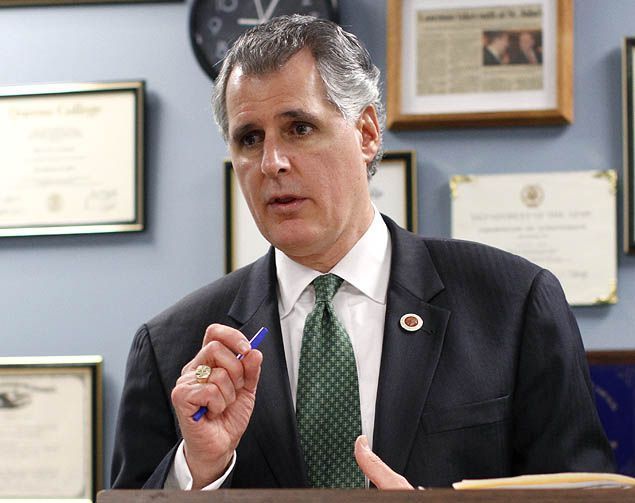 In the Special Election for Queens City Council District 24—vacated when Rory Lancman joined the Cuomo Administration—Democrat James Gennaro is poised to regain the seat he held eight years ago (the official results are pending with at least 600 absentee ballots still not counted). The election was the first in New York City’s new ranked choice voting but did not come into effect as Gennaro secured nearly 60 percent of first-choice picks, or 3,379 votes, in the district covering Kew Gardens Hills, Fresh Meadows, Hillcrest, Pomonok, Jamaica Hills and Briarwood. A candidate must win more than 50 percent of the votes to be declared winner.
In the Special Election for Queens City Council District 24—vacated when Rory Lancman joined the Cuomo Administration—Democrat James Gennaro is poised to regain the seat he held eight years ago (the official results are pending with at least 600 absentee ballots still not counted). The election was the first in New York City’s new ranked choice voting but did not come into effect as Gennaro secured nearly 60 percent of first-choice picks, or 3,379 votes, in the district covering Kew Gardens Hills, Fresh Meadows, Hillcrest, Pomonok, Jamaica Hills and Briarwood. A candidate must win more than 50 percent of the votes to be declared winner.
And finally, this week, the State Legislature will host Joint Legislative Budget hearings on Human Services, Public Protection, and Local Government, and Committee agendas are packed with over 150 bills being considered in the Senate and Assembly. In short, you will want to stay tuned…
— Jack O’Donnell
FOR DAILY UPDATES, FOLLOW US:
Another Democrat Calls on Legislature to Rescind Cuomo’s Emergency Powers
Following State Senator Liz Krueger, Allesandra Biaggi becomes the second Democratic State Senator to demand that Governor Andrew Cuomo’s emergency powers to manage the COVID-19 pandemic be eliminated. [Read more.]
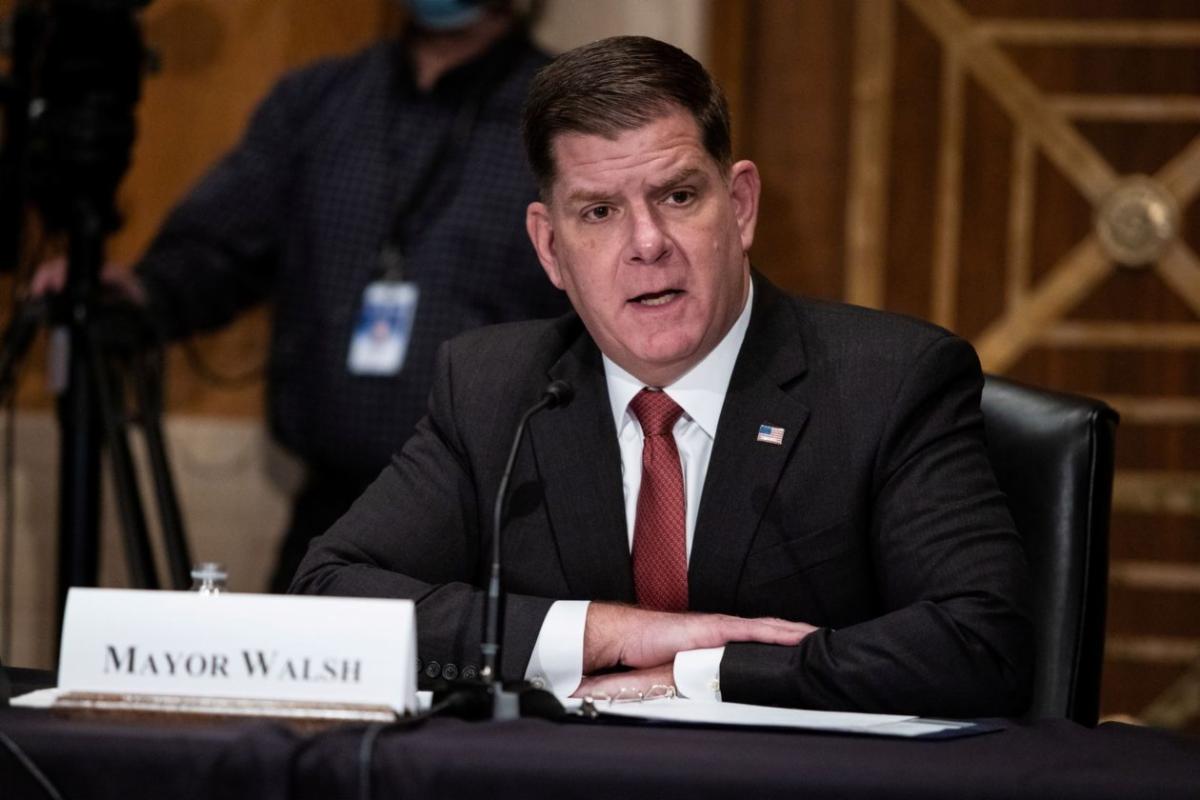
Biden’s Labor Pick Would Bring Union Advocate to Cabinet
President Biden’s pick for Labor Department secretary, Boston Mayor Marty Walsh, would bring a champion of organized labor to the White House cabinet. [Read more.]

Off the Rails: Inside the Craziest Meeting of the Trump Presidency
It was early evening on Friday, Dec. 18, more than a month after the election had been declared for Joe Biden and four days after the Electoral College met in every state to make it official, when four conspiracy theorists marched into the Oval Office. [Read more.]
O’Donnell & Associates 2021
Preview of New York Policy & Politics
NYS Legislature: New Member Spotlight
Jenifer Rajkumar, Assembly District 38
In June, Assembly Member Jenifer Rajkumar made history as the first South Asian-American woman ever to be elected to a state office in New York after she beat incumbent Michael Miller, who had represented the Queens District since 2009.
incumbent Michael Miller, who had represented the Queens District since 2009.
Assembly Member Rajkumar is a civil rights attorney and a former District Leader with a background working in government. She served as the state’s Director of Immigration Affairs and as Special Counsel from 2017 to 2019. She is on the board of Represent Women, on the Legal Advisory Council for Sanctuary for Families, and a member of a number of other organizations for social change. She also taught as a Professor at CUNY’s Lehman College.
As Director of Immigration Affairs & Special Counsel for New York State, Assembly Member Rajkumar led and built the Liberty Defense Project, a first-in-the-nation, multi-million-dollar state-led project to assist immigrants in obtaining legal services. Assembly Member Rajkumar also represented New York State in litigation before Administrative Law Judges. She served as an ethics officer, handling ethics matters for the State. She was a state-wide surrogate on the state’s signature policy items. She traveled from the farms of upstate New York to her home in Queens to help New York’s communities. Inspired by the people of New York, she is now more motivated than ever to dedicate herself to public service as a proud member of the New York State Assembly.
Assembly Member Rajkumar was born and raised in New York, the first-generation American in her family. Her parents immigrated to the United States with just $300 and a suitcase, settling in Queens where they got their start.
This session, Assembly Member Rajkumar will Chair the Subcommittee on Diversity in Law, and serve as a member on the Committees on Aging, Consumer Affairs and Protection, Judiciary, Small Business, Veterans’ Affairs, as well as the Task Force on Women’s Issues.

